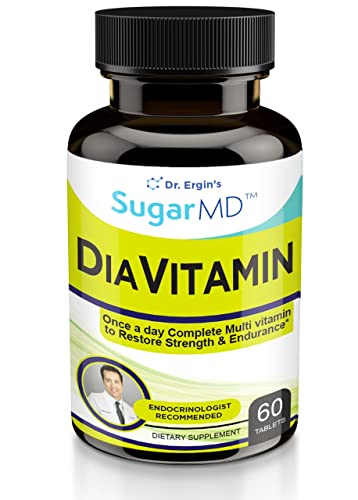






Can a Diabetic Intermittent Fast?


Table of Contents
- Can Patients With Diabetes Do Intermittent Fasting?
- Risk of Low Blood Sugar For Diabetics While Intermittent Fasting
- Other Risks and Side Effects of Intermittent Fasting for Diabetics
- Who needs to be Extra Careful While Intermittent Fasting?
- How to Fast Safely If You Have Diabetes?
- How To Take Diabetic Medications During Fasting?
Can Patients With Diabetes Do Intermittent Fasting?
In this blog, we will talk about the risks of intermittent fasting especially when you are on diabetic meds and have a certain medical condition and how to prevent or reduce risks. Can diabetics really intermittent fast safely or whether patients with diabetes occasionally do intermittent fasting?
Intermittent fasting is becoming more and more popular as a way to lose weight and control chronic illnesses. Patients with diabetes mellitus, both types 1 and 2, make up about 10% of the population in the United States. They are likely to be interested in one of the many methods of intermittent fasting.
There are very few studies on the safety and benefits of intermittent fasting for people with diabetes, and health advice today comes mostly from weight-loss gurus and animal studies, which aren't very good for people.
There are no medical guidelines on how to manage therapeutic intermittent fasting in people with diabetes especially if you are on medications. Your clinic doctor will say don’t fast but there are online articles will say fasting will fix everything and yet you are scared because you can't decide what to do with your medications while fasting because you are scared your glucose will bottom out on meds, right?
Risk of Low Blood Sugar For Diabetics While Intermittent Fasting
It is true that there is a risk of hypoglycemia/ low sugar when diabetic people who do intermittent fasting and take anti-diabetic drugs that can cause low blood sugar, like insulin (both prandial and basal) and sulfonylureas (including the short-acting meglitinides).
There is a small risk of hypoglycemia when other diabetes medications are used alone or in combination with insulin or sulfonylureas. This risk is much lower, but it is still a concern. We will talk more about it and I want to hear from you as well so please write a comment or question below.
With long-term intermittent fasting, one should also be concerned about protein malnutrition if patients don't pay attention to how much protein they eat when they eat.

Diavitamin
Because of how many days a week the patient is fasting as well as what they eat when they do eat, it might be necessary to take vitamins and minerals like the ones in SugarMD Diavitamin.
Other Risks and Side Effects of Intermittent Fasting for Diabetics
Other risks include a wide range of problems that could happen if you don't get enough energy or if you don't drink enough water when you are diabetic and intermittent fast. These are things that could happen to anyone who does intermittent fasting, no matter if they have diabetes or not. Such side effects may include dizziness, nausea, insomnia, syncope( passing out), falls, migraine headaches, the weakness that makes it hard to do everyday things, and a lot of hunger pangs.
Who needs to be Extra Careful While Intermittent Fasting?
People who have a chronic disease, like diabetes, may be more likely to have some of these side effects, as well as people who have coronary artery disease, unstable angina, heart failure, atrial fibrillation, a previous heart attack or stroke, most cancers, chronic obstructive pulmonary disease, pulmonary embolism, asthma, peripheral vascular thromboembolism, chronic kidney disease, and other conditions.
They should not necessarily avoid fasting, but they should be aware that little is known about how fasting might affect their health risks. This is why studies need to be done on people with these chronic diseases, where there are higher chances of them getting sick. Certainly, putting these people at risk for things like a new heart attack, stroke, or death isn't worth it, and know that there isn't a lot of evidence in these groups, being cautious is the best thing to do.
For conditions where dehydration is a risk, such as a stroke, it's good to tell diabetic people who intermittent fast to drink a lot during any fasting regimen. People of all ages who are doing intermittent fasting should think about drinking water, even if they don't eat food. This is because water can be used to replace fluids that would normally be found in food.
As a result, some groups have unique risks and should not do intermittent fasting, especially if they have diabetes. pregnant and lactating women, young children as well as older adults who are frail, are all included in this group. People who have immune deficiencies, like those who have had a solid organ transplant or are on medical immunosuppression, should not fast.
The people who have an eating disorder and those with dementia both have unique problems that will be made worse by intentionally going on a fast, so they should not follow intermittent fasting regimens. Patients who have a history of traumatic brain injury or post-concussion syndrome may also be more likely to have problems when they start a fasting regimen. Their needs should be carefully thought through before starting a fasting regimen.
How to Fast Safely If You Have Diabetes?
Patients with diabetes who are interested in intermittent fasting should be encouraged to do so with the help of a healthcare professional, such as a doctor, nurse practitioner, physician's assistant, certified diabetes educator. Specific attention should be paid to three things: medication changes, glucose monitoring, and fluid intake.
Some of these recommendations I have today are based on research that has been done on intermittent fasting and diabetes and some are my personal experiences with diabetic patients who are practicing fasting. Anti-diabetes drugs, such as sulfonylureas, meglitinides, and insulin, can cause low blood sugar, so their doses should be changed on days when people are fasting.
We should take into account how well the patient is taking care of their diabetes, including both fasting and postprandial glucose levels over the last two to four weeks, whether the patient is taking short-acting or long-acting insulin, the length of the fast, and whether the fasting is for all calories or just carbohydrates.
How To Take Diabetic Medications During Fasting?
Sulfonylureas- glipizide, glyburide, glimepiride etc. If you are intermittent fasting and diabetic, skip the medication that day if you want to fast for 24 hours. Take half the dose if you want to fast for part of the day (i.e., when a meal is consumed at some point partway through the fasting day). Caution for the half dose is that a lot of education and monitoring may be needed to avoid low blood sugar.
A third option is to not take any medicine at all especially if you are on a low carb diet anyway even on a partial day of fasting. This is more conservative and cautious. If you are taking nateglinide or repaglinide which works like short-acting sulfonylureas, skip before a meal that contains no carbohydrates.
If you are taking alpha-glucosidase inhibitors such as acarbose you can skip them by not eating carbs at all for your meal after fasting. Dosage of basal insulin should be reduced if people don't know when they're low on blood sugar or is at risk for hypoglycemia-related problems.
If that is you, then, you should do more blood glucose tests until you see stable blood sugar patterns that match how you are eating during intermittent fasting. To be more specific with these insulins, If you are on Levemir, Lantus, or NPH insulin such as Novolin N take one-third of the usual dose (70 percent lower dose) for controlled patients (ask your doctor if you are controlled or not) and half of the usual dose (50 percent lower dose) for uncontrolled patients (for example, someone who usually wakes up with high blood sugar consistently).
Acarbose or miglitol, you can skip if you are not eating carbohydrates that day. If you are diabetic and trying to intermittent fast on Toujeo or Tresiba monitor closely and if your fasting goes below 100 mg/dl start cutting back 10 percent if you are going to continue to fast the next day or following days.
If you are on short-acting insulin you should never take them when fasting except if your blood sugar is high for another reason such as sickness like infection etc which then you can use sliding scale insulin under physician supervision. If you are on premixed insulin-like Novolin 70/30, Humulin 70/30 Humalog 75/25 50/50 etc same rule applies to short-acting insulin.
Although premixed insulins are a combination of short and long-acting insulins short-acting components can cause a heavy blood sugar crash. Metformin, thiazolidinediones (pioglitazone), and DPP-4 inhibitors such as Januvia, Janumet, Tradjenda, and others rarely cause hypoglycemia and can be taken as usual.
Metformin and TZDs have other benefits besides glucose control such as lowering insulin resistance and should therefore be continued. DPP4 inhibitors, on the other hand, are only prescribed for glucose control, so they can be skipped on fasting days if the patient or doctor prefers. SGLT-2 Inhibitors rarely cause hypoglycemia, but they can cause osmotic diuresis, in English they make you pee like a horse.
Due to this latter effect, if the usual fluid intake changes during the fasting day, it may be appropriate to skip taking this medication on days when you engage in intermittent fasting to avoid dehydration and the resulting hypotension. GLP-1 agonists are also safe during fasting. The meds in this class are Ozempic, Victoza, Trulicity, Rybelsus etc. So what if your experience with intermittent fasting on medications? Let us know in the comments below. Dr. Ahmet Ergin Endocrinologist
Written By Dr. Ahmet Ergin
457 total articles
Meet Dr. Ahmet Ergin, a highly skilled and dedicated endocrinologist with a passion for diabetes care. Dr. Ergin earned his medical degree with honors from Marmara University in Istanbul. He completed internal medicine residency and endocrinology fellowship at Cleveland Clinic. Dr. Ergin is board-certified in Internal Medicine, Endocrinology, Diabetes, and Metabolism due to his vast medical expertise. He's a certified diabetes educator, author of “The Ultimate Diabetes Book,” and founder of “the SugarMD YouTube channel.” Dr. Ergin offers exceptional diabetes care to his patients in Port Saint Lucie, FL, helping them manage effectively. For a closer look into his insights and experiences, connect with Dr. Ahmet Ergin on LinkedIn, Instagram, and YouTube.”
Disclaimer: These statements have not been evaluated by the Food and Drug Administration. Information on this website isn't intended to treat, cure or prevent any disease. Discuss with your doctor and do not self-treat.
Products





